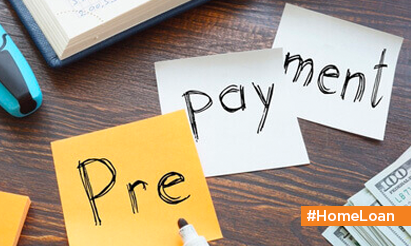What exactly is a home equity loan?
House equity loans allow you to borrow money against the value of your home while it remains mortgaged. Because they are secured loans using the borrower’s home as collateral, they provide access to large quantities of money and are easier to get than other forms of loans.
Whereas if the worth of your property surpasses the amount you currently owe the bank, you may be qualified for a home equity loan. A home equity loan can supply you with funds for a variety of purposes, such as your child’s higher education, your business, home upgrades, or other requirements. There is no condition that the borrowed monies be used just for domestic purposes. Nevertheless, there are risks to utilising your home as a loan guarantee.
A home equity loan is a second mortgage loan. Your “first” mortgage is the loan you utilised to purchase your property. You may, though, borrow extra money against your ownership share in that particular property. Home equity loans are utilised to borrow money against your initial mortgage part.
Advantages of a home equity loan
Given extremely low-interest rates, home equity loans are a wonderful answer to serious financial challenges. Home equity loans are still appealing if the borrower is sure in his or her ability to make payments even if the property is in jeopardy. This loan’s strengths include its huge loan amounts, prolonged loan periods, low-interest rates, and simplicity of application. These do not, nevertheless, mean that this loan should be utilised for more discretionary desires, such as acquiring a high-end item, travelling overseas, or embarking on a massive shopping rampage. A home equity loan is allowed as long as the need for one can be demonstrated.
- Interest rates are low
A home equity loan always has a lower interest rate than other loans such as personal loans, business loans, and credit card loans.
Due to its being secured, this loan is less pricey. It is a secured loan since the equity in your property is used as security. The lender may provide this loan at a cheaper interest rate since there is less risk involved.
- It is feasible to choose a large loan amount.
You should now realise that this loan is being provided in return for your equity ownership of the property. As a consequence, the total amount you can borrow is solely determined by the share. In general, if you borrow a substantial quantity of money from a personal loan or another institution, you will pay considerably more than this amount.
- Easy approval
Home equity loans are often approved faster than other types of secured loans. The lenders are secure here since the property’s portion serves as collateral. As a result, they don’t require a lot of sophisticated processing. If the borrower fails to make a payment, the lenders have the option of recovering their money from the security.
Home equity loan admission requirements
- Equity: Your home must have equity worth more than 20% of its market value.
- Income: One must have at least two years of verified income history.
- Credit score: Just as with any other loan, a low credit score might make getting one more challenging. Make sure your credit score is 620 or above.
- Debt: Maintain a debt-to-income ratio of no higher than 43%.
- LTV: The loan-to-value ratio (LTV) shows how much of your current mortgage you still owe. Preferably, it should be less than 80%.
- When applying for a HELOC, lenders will use a combined loan-to-value ratio or CLTV. The CLTV is calculated by adding the necessary loan to your existing loan balance and dividing the outcome by the value of your house. For the majority of lenders, you must be qualified with a CLTV of 85% or less.
Why should someone take out a home equity loan?
Home equity loans provide several advantages that other forms of loans do not.
- Since they are backed by your home, home equity loans often offer lower interest rates. The lender is ready to offer money at a lower interest rate since they are convinced they will be repaid if the borrower defaults on the loan. Since this loan’s tenure duration may be greater than that of other loans, you may have to return it over a longer amount of time. As a consequence, your EMIs, or monthly payments, are lowered.
- Although your credit is low, there is still a possibility that you may be qualified for a home equity loan. Likewise, the bank isn’t very worried regarding your inability to return their investment because you’re a homeowner with a stake in the property.
- You may also be eligible for tax savings if you take out a home equity loan. This is a possibility, but it is not assured and relies on your unique case. Consult a tax professional for information on qualifying and permissible limits.
Disclaimer: The views expressed above are for informational purposes only based on industry reports and related news stories. PropertyPistol does not guarantee the accuracy, completeness, or reliability of the information and shall not be held responsible for any action taken based on the published information.




